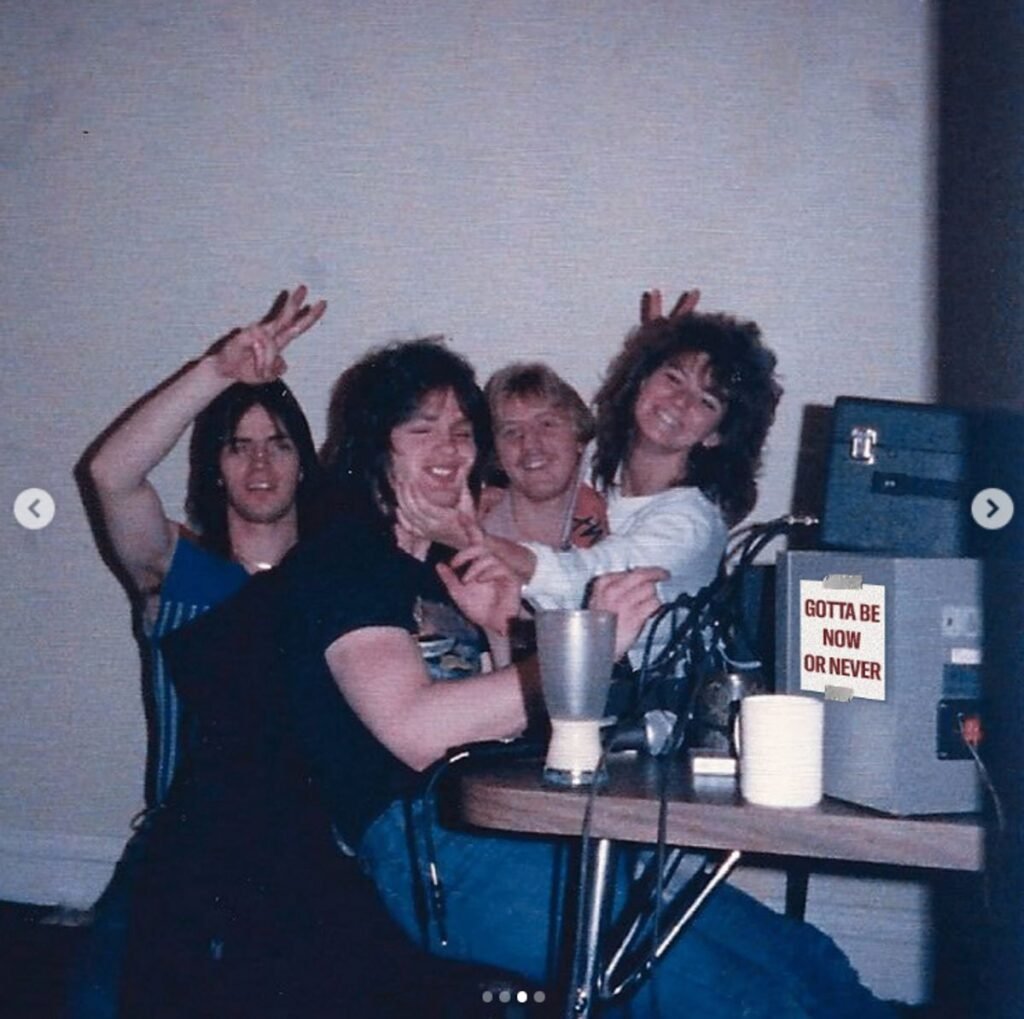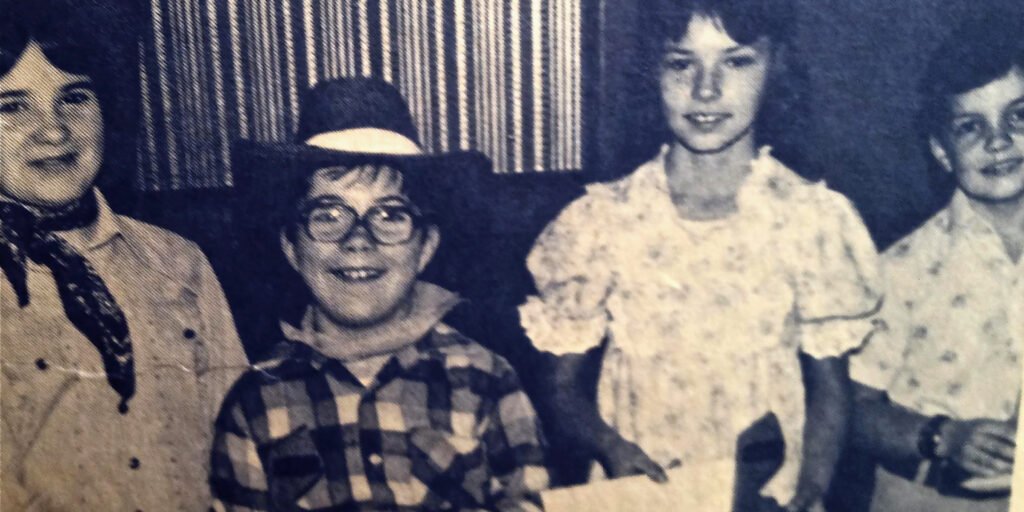From Family Tragedy to Music Stardom: The Journey of a Woman Who Became Her Siblings’ Rock
A young girl from Ontario turned to music for strength while dealing with a difficult home life. After a tragedy, she became the primary caregiver for her family, putting her dreams on hold to support them. Years later, her voice, once a personal escape, has now inspired people around the world.
Born into poverty in Timmins, Ontario, she grew up in a family that struggled to meet basic needs. With her stepfather working a low-paying reforestation job and her mother battling depression, there was little chance for improvement. As one of five children, she learned to go without and found comfort in her passion for singing.

Starting to sing in bars at a young age, she found brief moments of escape and self-worth through her music. However, nothing could have prepared her for the immense responsibility she would take on when, at a young age, she was left to raise her siblings alone.

A Childhood in Poverty and Strife
From a young age, she experienced the harsh realities of living without. Money was always scarce, and her family often struggled to afford basic necessities like food, heat, and even reliable lighting. She soon realized how different her life was compared to her classmates. Going to school without lunch, she would watch her peers, secretly hoping they might leave an apple behind for her to take later.
To avoid the shame of admitting she had no lunch, she would tell her teacher it was “in her locker” or that she’d “forgotten it.” Music became her refuge from these harsh realities, particularly the constant hunger. With her guitar in hand, she would retreat into the forest, light a small fire, and lose herself in the songs she played. The melodies offered a temporary escape, helping her forget the emptiness in her stomach.

Her mother recognized her talent as a potential way out and began taking her to sing in local bars when she was just eight years old. Since the bars couldn’t legally let her in while alcohol was being served, she would perform after midnight, once the patrons had already stocked up on drinks.

By age eleven, she had a special permit to perform earlier in the evening, though she didn’t start getting paid until she was fourteen. That was when she began working at McDonald’s, a job she called her “saving grace,” providing her with both a paycheck and regular meals — luxuries she had long yearned for.
Her routine of attending school, working at McDonald’s, and singing in bars left her completely exhausted, but she persevered, driven by a deep love for music and the hope that it could one day lead to a better life.
Abuse and Trauma at Home
Her challenges at home went beyond poverty. The presence of her stepfather, who legally adopted her and her siblings, cast a darker shadow over her childhood. He was not only harsh but abusive, creating a constant atmosphere of fear and pain in their home.
She recalls learning to defend herself against his violence, once even summoning the courage to throw a chair at him in self-defense. “I think a lot of that was anger, not courage,” she later reflected, describing how her survival instincts often clashed with the constant fear she lived with.

Abuse and Trauma at Home
Her challenges at home went beyond poverty. The presence of her stepfather, who legally adopted her and her siblings, cast a darker shadow over her childhood. He was not only harsh but abusive, creating a constant atmosphere of fear and pain in their home.
She recalls learning to defend herself against his violence, once even summoning the courage to throw a chair at him in self-defense. “I think a lot of that was anger, not courage,” she later reflected, describing how her survival instincts often clashed with the constant fear she lived with.
It seems like you might have accidentally sent a blank message. Let me know if you’d like to continue or need anything else!

For years, she kept the secret of a deeper violation, carrying the weight of that trauma in silence. It wasn’t until recently that she felt able to share her story publicly, understanding the importance of speaking out.
She never had the opportunity to confront her stepfather, as he passed away unexpectedly. His death left her with complex grief—he was the man who had caused her so much harm, yet his absence left her with unresolved trauma and a lifetime of unanswered questions.
Sudden Loss and Responsibility
At just twenty-two, she faced a tragedy that changed the course of her life. Her mother and stepfather died suddenly in a car accident, leaving her to care for her younger siblings. As the second eldest, she was now thrust into the role of their primary caregiver, a responsibility she had never anticipated.
Determined to keep her family together, she took a singing job at a nearby resort hotel, which allowed her to afford a small home. Her daily routine was grueling—she would start each day by chopping wood to heat the house, getting her siblings off to school, and then performing late into the night to make ends meet.

With her role as a singer came the pressure to project a polished and feminine image, something she had never focused on before. Now, it was a requirement for her job. Navigating this public persona presented numerous challenges, as she had to balance the demands of her career with the complexities of her personal life.

She was aware of the expectations that came with performing and worked hard to maintain her personal boundaries in an environment where her appearance was constantly scrutinized. However, her primary focus remained on supporting her family, ensuring they had what they needed despite the pressures of her public role.

Rising Above and Building a Career
As her siblings grew older and became more independent, she shifted her focus to her music career, aiming to turn her lifelong talent into something sustainable. Driven to make a breakthrough, she recorded a demo and sent it to various record labels, hoping for a chance to make her mark in the industry.
Her perseverance paid off when Mercury Nashville signed her, offering her the opportunity to release her debut album. This marked the beginning of her professional music career, and her singing would soon bring her recognition far beyond the local venues she had once performed in.

Shortly after signing with the label, she met a renowned music producer who would become both her collaborator and, eventually, her husband. Together, they created music that resonated with a wide audience, combining her unique voice with his co-writing and production expertise.

Their partnership played a crucial role in shaping her career, and her fame grew rapidly as a result. Her music began reaching audiences on a scale she had once only dreamed of, propelling her to success and solidifying her place in the music industry.

Despite her rising success, she faced a significant setback years later when she began to lose her voice. It wasn’t until a decade after the symptoms first appeared that she was diagnosed with Lyme disease, which had damaged the nerves in her vocal cords, threatening her career and her ability to perform.

The condition forced her to take a long hiatus from singing. Even after a successful surgery, her voice was left with a new, raspier quality. Embracing this change, she returned to music, grateful to have her voice back, even if it was different from before.

Betrayal, Heartbreak, and Finding New Love
For fourteen years, her partnership with music producer Robert “Mutt” Lange brought hit songs, a son named Eja D’Angelo Lange, and a marriage that seemed unbreakable. However, everything changed when she discovered that Lange had been unfaithful, shattering their relationship.
The revelation was even more painful because his affair was with her close friend, Marie-Anne Thiébaud, who had also worked closely with them as their secretary. This double betrayal shattered her trust, and the marriage ended in divorce, leaving her heartbroken and devastated.

Amid the heartbreak, she found an unexpected ally in Frédéric Thiébaud — Marie-Anne’s husband, who had also been blindsided by the affair. Initially, their relationship was built on mutual understanding and shared pain, as they both navigated the betrayal and loss.

Over time, their bond deepened, and what began as a friendship blossomed into something more. In 2011, they married, bringing a sense of renewal and healing to her life after the years of heartbreak and
Reflecting on this chapter, she shared that while the betrayal was deeply painful, she no longer holds onto anger. Instead, she acknowledges Lange’s contributions to her music career and chooses to focus on the positive impact their collaboration had on her journey, appreciating the growth it brought her.
With her new marriage, she found the stability and peace that had once seemed elusive, allowing her to move forward with a sense of closure and gratitude. This new chapter in her life gave her the emotional grounding to embrace the future with hope and resilience.

After years of struggle, heartbreak, and resilience, the young girl from Timmins, Ontario, has transformed into a world-renowned music icon — Shania Twain. Her journey, marked by personal challenges and triumphs, has solidified her legacy as one of the most influential figures in country and pop music.

Her journey from poverty and abuse to global stardom is a testament to her strength and determination. Despite facing unimaginable hardships, she found a way to survive and thrive, ultimately building a legacy that continues to inspire countless people around the world.




